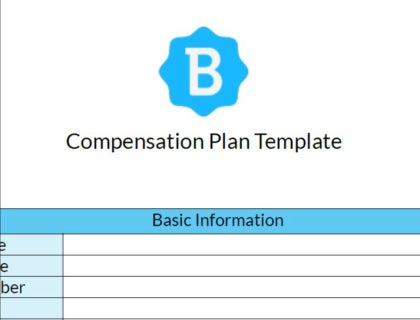
Compensation Plan Template Download
Download this free compensation plan template in MS Word format and start using it straight away.
Download NowHow to Create a Compensation Plan:
1. List all the positions in your company.
Consider how many employees your business will need and what positions are essential to business operations. List every position necessary to get started as well as those positions that will become available as the company grows.
2. Create a job description for each position.
You will need a job description for every position in your company. You can get ideas for job descriptions by researching your competitors, or you can create one using our job description template.
3. Determine the appropriate amount of compensation.
While you are researching your competitors, pay attention to the compensation they are offering for the various positions as well as common incentives. This will give you an idea of what you need to offer to attract the best talent. Be sure to look into on-target earnings (OTE).
4. Factor in overtime, commission, bonuses, and paid time off.
In addition to regular salary or hourly wages, consider if you will be offering overtime, commission, signing bonuses, raises, and other forms of direct compensation.
5. Identify the benefits and incentives that you will provide.
Popular benefits include health insurance, dental care, and workers' compensation. Some employers also offer flexible hours, tuition reimbursement, meal plans, gym memberships, and more. Figure out what benefits you can afford. You may want to look into voluntary benefits as an affordable option.
6. Determine the retirement options you will provide.
Depending on the size of your company and the number of employees, you may want to provide additional retirement planning options. Common retirement options include employee pensions, 401(k), stock options, and profit sharing.
7. Detail your decisions in a document.
After you have determined the compensation for each position, how much it will increase, and what incentives and benefits you will offer, list these in an official document. The compensation plan document can be shared with employees upon hiring.


